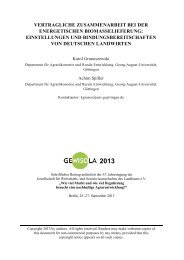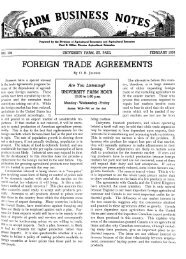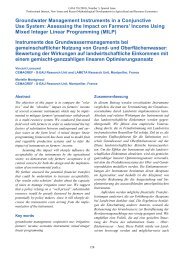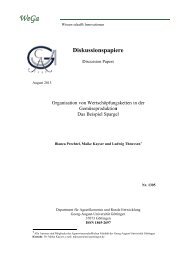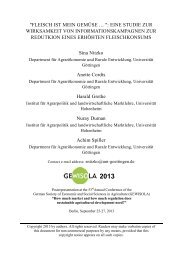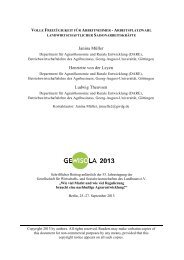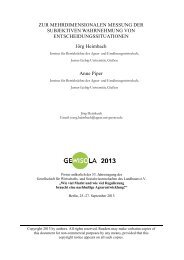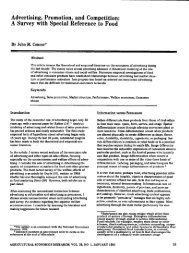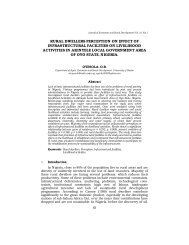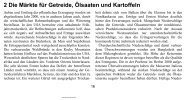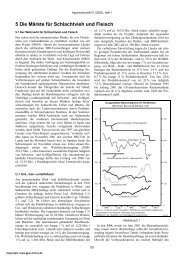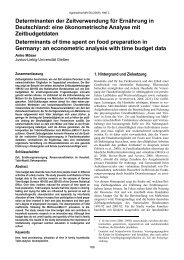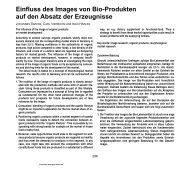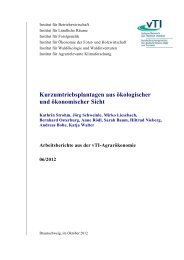District Institutes of Education and Training - Teacher Education
District Institutes of Education and Training - Teacher Education
District Institutes of Education and Training - Teacher Education
You also want an ePaper? Increase the reach of your titles
YUMPU automatically turns print PDFs into web optimized ePapers that Google loves.
<strong>District</strong> <strong>Institutes</strong> <strong>of</strong> <strong>Education</strong> <strong>and</strong> <strong>Training</strong>: A Comparative Study in Three Indian States<br />
Chapter 7 Pr<strong>of</strong>essional Development through<br />
Collaborative Action Research with Diets<br />
7.1 Introduction<br />
The preceding chapters have illustrated that in the DIETs, pre- <strong>and</strong> in-service<br />
teacher development largely follow a transmission model, with a dominant focus<br />
on teaching, rather than learning. The evidence from across the case study sites is<br />
that this model is not really engaging with either pre- or in-service teachers on<br />
important issues such as their attitudes <strong>and</strong> values, or aspirations. While it aspires<br />
to build teachers’ skills, it does so without informing itself about which skills<br />
practising <strong>and</strong> student teachers already have.<br />
Although the evidence suggests this is a relative weak version <strong>of</strong> the internationally<br />
dominant ‘skills <strong>and</strong> knowledge’ approach, this kind <strong>of</strong> approach has intrinsic<br />
limitations. It pays little attention to the context in which those skills are to be<br />
used, <strong>and</strong> does not concern itself with the crucial question <strong>of</strong> a teacher’s will to<br />
adopt change messages (Hargreaves <strong>and</strong> Fullan 1992). This is particularly<br />
important in the contexts we are examining here because, as the situation analysis<br />
has highlighted, there are issues around agency, ownership <strong>and</strong> responsibility -<br />
among DIET staff as well as pre- <strong>and</strong> in-service teachers. Developing educators’<br />
sense <strong>of</strong> agency, ownership <strong>and</strong> responsibility emerges as an aspect <strong>of</strong><br />
decentralisation that needs to be actively encouraged. These issues are central to<br />
teacher development <strong>and</strong> the promotion <strong>of</strong> quality elementary education, but are<br />
not really being addressed by current training approaches. Pace-setting teachers<br />
<strong>and</strong> some DIET staff, on the other h<strong>and</strong>, have a strong sense <strong>of</strong> personal <strong>and</strong><br />
institutional agency in relation to change messages, have ownership <strong>of</strong> classroom<br />
processes, <strong>and</strong> feel responsible for others’ learning.<br />
The following three chapters explore an alternative approach to teacher educator<br />
<strong>and</strong> teacher development that focuses on agency, ownership <strong>and</strong> responsibility. The<br />
approach adopted by the research team differed from the dominant model to<br />
practitioner development adopted by the state, in that it does not see the teacher<br />
as a ‘technician’ who is expected to implement the ideas <strong>of</strong> others, or training in<br />
terms <strong>of</strong> inputs towards skill building. Rather, it builds on Donald Schön’s (1983)<br />
idea <strong>of</strong> the teacher as a ‘reflective practitioner’ <strong>and</strong> decision-maker, linking this<br />
with the idea <strong>of</strong> engaging practitioners with their practices in ways that make<br />
‘training’ a more meaningful experience.<br />
7.2 Pr<strong>of</strong>essional development for DIET staff<br />
7.2.1 Action research as an avenue for pr<strong>of</strong>essional development<br />
The possible avenues for pr<strong>of</strong>essional development <strong>of</strong> DIET staff were many, but<br />
DIETs elected to focus with the team on the action research component <strong>of</strong> their<br />
DFID 131



